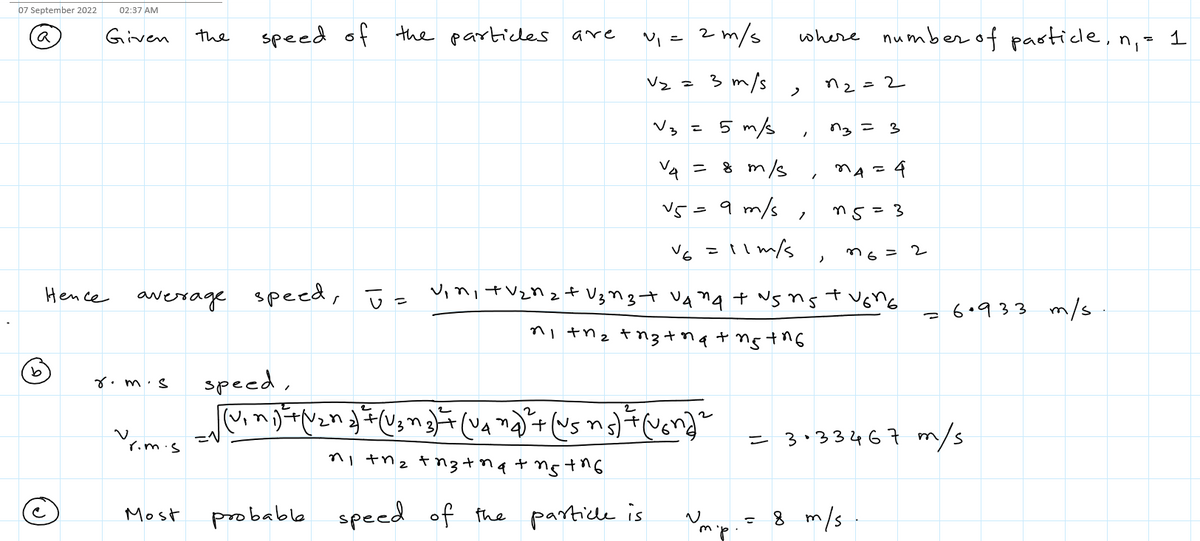Fifteen identical particles have various speeds: one has a speed of 2.00 m/s, two have speeds of 3.00 m/s, three have speeds of 5.00 m/s, four have speeds of 8.00 m/s, three have speeds of 9.00 m/s, and two have speeds of 11.0 m/s. (a) Find the average speed (in m/s). m/s (b) Find the rms speed (in m/s). m/s (c) Find the most probable speed of these particles (in m/s). m/s (d) What If? How many additional particles with a speed of 14.6 m/s must be added to the original fifteen particles for the average speed to become 10.0 m/s? (Round your answer to at least the nearest integer.) particles (e) What would be the rms speed of the original plus additional particles (in m/s)? m/s
Fifteen identical particles have various speeds: one has a speed of 2.00 m/s, two have speeds of 3.00 m/s, three have speeds of 5.00 m/s, four have speeds of 8.00 m/s, three have speeds of 9.00 m/s, and two have speeds of 11.0 m/s. (a) Find the average speed (in m/s). m/s (b) Find the rms speed (in m/s). m/s (c) Find the most probable speed of these particles (in m/s). m/s (d) What If? How many additional particles with a speed of 14.6 m/s must be added to the original fifteen particles for the average speed to become 10.0 m/s? (Round your answer to at least the nearest integer.) particles (e) What would be the rms speed of the original plus additional particles (in m/s)? m/s
Related questions
Question
For d, and e for this rather huge question can I get a detailed reply my answers seem to be off.

Transcribed Image Text:Fifteen identical particles have various speeds: one has a speed of 2.00 m/s, two have speeds of 3.00 m/s, three have speeds of 5.00 m/s, four have speeds of 8.00 m/s, three have speeds of
9.00 m/s, and two have speeds of 11.0 m/s.
(a) Find the average speed (in m/s).
m/s
(b) Find the rms speed (in m/s).
m/s
(c) Find the most probable speed of these particles (in m/s).
m/s
(d) What If? How many additional particles with a speed of 14.6 m/s must be added to the original fifteen particles for the average speed to become 10.0 m/s? (Round your answer to at least the
nearest integer.)
particles
(e) What would be the rms speed of the original plus additional particles (in m/s)?
m/s
Expert Solution
Step 1

Step by step
Solved in 2 steps with 2 images
